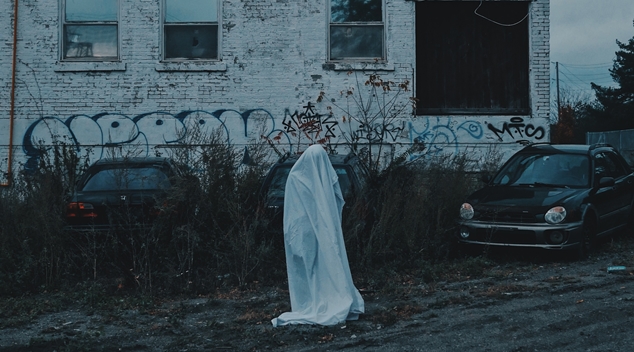
Today I learned The Amityville Horror was a massive hoax.
The famous house in Amityville, New York was never haunted. The whole (hugely bestselling) story was made up out of whole cloth – partly to try and get a new trial for Butch DeFeo.
Butch murdered his family there, but no ghosts were involved.
So, imagine you’re buying a house. For some of us, the idea of buying a house feels about as solid as a ghost. But try to imagine it. You’re buying a house, and the seller is in a hurry to offload it, selling it below market value.
You seal the deal, move in, then find out the previous owner was a serial killer who unconvincingly claimed to be obeying the demands of his neighbour’s dog. What then?
Jo Natoli, Managing Director for The Rental Specialists, says a murder is something that really should get mentioned when you ask why they’re in a hurry to sell the place. A “serious violent crime” like that is a “material fact” that a landlord/agent is required to tell you about, Natoli says.
Of course, murder doesn’t equal haunted. But there are places in WA where things do go bump in the night. At least, there’s places known to be haunted.
Paula Nelson, director for Fremantle Prison, tells OUTinPerth “While we don’t promote the Prison as a haunted location, we’re aware of its reputation as such.”
The prison has been owned and operated by the state government since 2002, so Nelson can’t comment on buying haunted houses, but she has experience with experiences.
Many staff and visitors have reported strange occurrences, Nelson says, including reports from officers before the prison was decommissioned in 1991.
“The most well-known of these are a ghostly figure appearing in Gun Post 4,” Nelson says, and the reports received from current visitors are commonly of cold spots in certain locations, along with shadowy figures and orbs being seen and captured in photos.
“When it comes to the paranormal it’s impossible to say either way,” Nelson says, but some of the strange stories are included on the Prison’s night time Torchlight Tours.
Despite many Perth places making most haunted lists, it’s surprisingly difficult to get them to talk. Bills Bar & Bites in Leederville is reputedly haunted by “old Kanga”, a ghost associated with the former Leederville Hotel. The internet abounds with stories about staff and guests coming into contact with old Kanga, but OUTinPerth’s requests for comment went unanswered, like a broken Ouija board.
The Kalamunda Hotel is on more “scary spots” lists of Perth than you could shake a skeletal fist at but were again as quiet as a grave. Kalamunda Hotel forwarded OUTinPerth’s emails to local impresarios NY Events, who were piloting Kalamunda Hotel Ghost Adventures with ‘Paranormal Intuitive’ Marcella Kahurangi earlier this year.
Like an empty séance, there weren’t any answers to questions about the hotel’s reputation, what they’d witnessed, and how far they thought someone should know if a house is haunted before buying.
It seems fairly cut and dry if you want to sell a haunted house.
“Whether a property is haunted or not is not a ‘material fact’” Natoli says. So if someone sells you a prison with poltergeists or a hotel with a hellmouth they don’t have to tell you about its otherworld extras.
Ghosts aren’t fact, and if ghosts aren’t fact it follows it can’t be a “material fact” that a place is haunted. So nobody needs to know?
Except it’s not that simple at all.
WA’s Property Law Act of 1969 says buyers need to know of any “potential psychological stigma” attached to a property. It’s a mouthful. But I think it means if a place has a bad rep for whatever reason then they need to tell you.
“Psychological stigma” could mean previous-owner-Ed murdering people there. But “stigma attached to the property” could also realistically apply to spooks, if the place has a reputation for it.
In the infamous Ghostbusters Ruling in the US (Stambovsky v. Ackley, for anyone interested) the court ruled that regardless of whether the house was truly haunted or not, the fact that the house had been widely reported as haunted greatly affected its value, and the buyer should have been told.
REIWA President Damian Collins acknowledges haunted houses are complicated.
“If an agent knew about a ghost/haunted house then they would ask themselves ‘is this something that would affect most people’s decision to buy or not?’” Collins says, “or ‘is this something that I (as a buyer) would want to know about?’”
In most cases, Collins says, it’s expected that a reasonable agent would say yes, a reputation for being haunted is something to disclose. Would it affect the resale? That really depends upon the buyer, he says – some people might care, and others might say they ain’t afraid of no ghost. But for those who do care, it could make a difference – and they could walk away from the sale.
Elsewhere in the country, James Ballantyne, principal of Ballantyne Law Group, says Queensland requires you to disclose whether a property is recorded on contaminated land or environmental management registers. However, Ballantyne says, he’s “not currently aware of any official register recording the existence of ghouls or ghosts on a property.”
Ballantyne adds that while there isn’t any requirement for sellers to disclose something that might stigmatise a property (such as deaths) real estate agents have obligations to verify and disclose ‘facts material to the sale’ – but “whether the existence of supernatural beings is regarded as a ‘material fact’ will depend on the circumstances.”
Unfortunately, we didn’t have time to discuss further what those circumstances around supernatural beings would require them disclosed.
Jay Chesters

Love OUTinPerth Campaign
Help support the publication of OUTinPerth by contributing to our
GoFundMe campaign.





